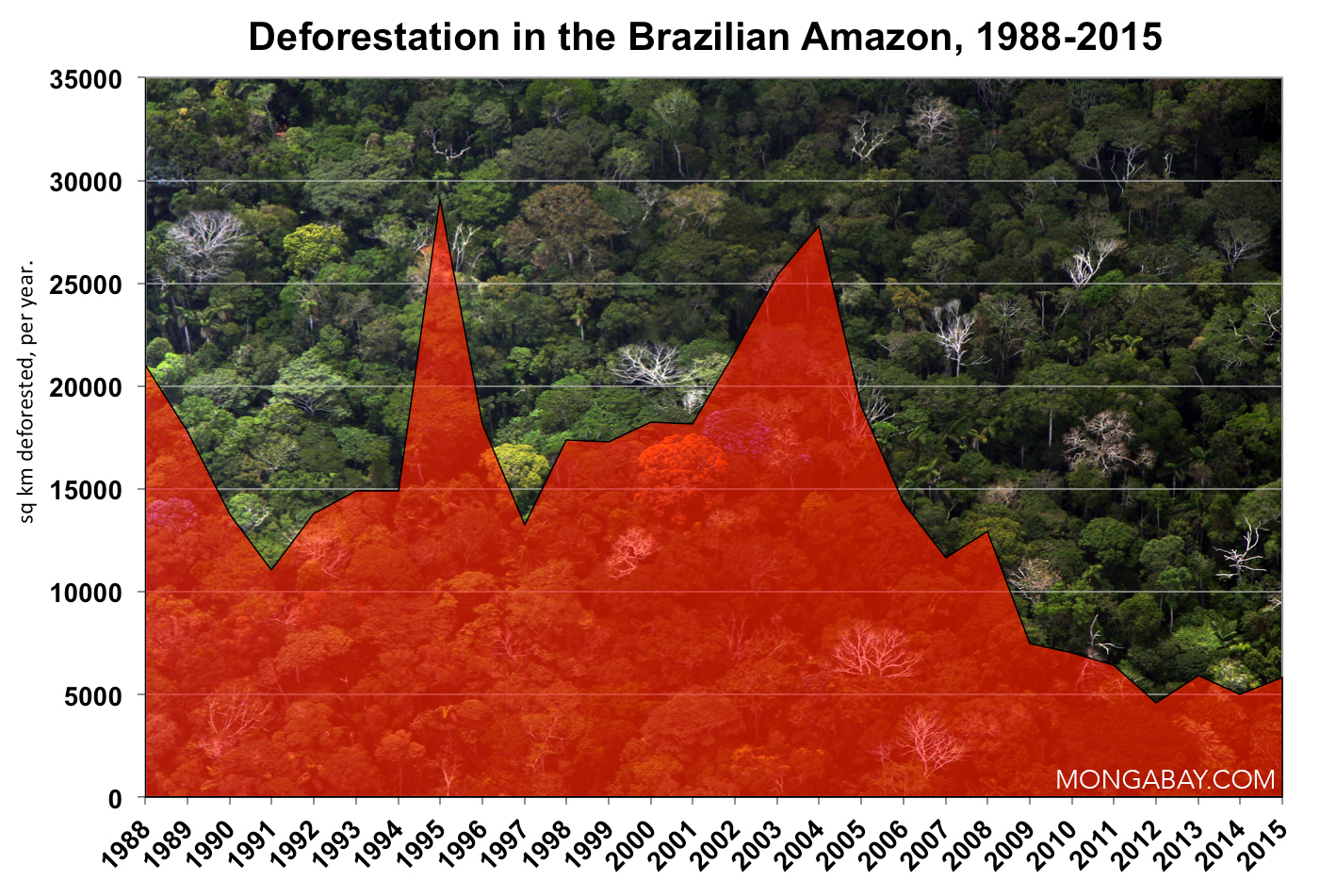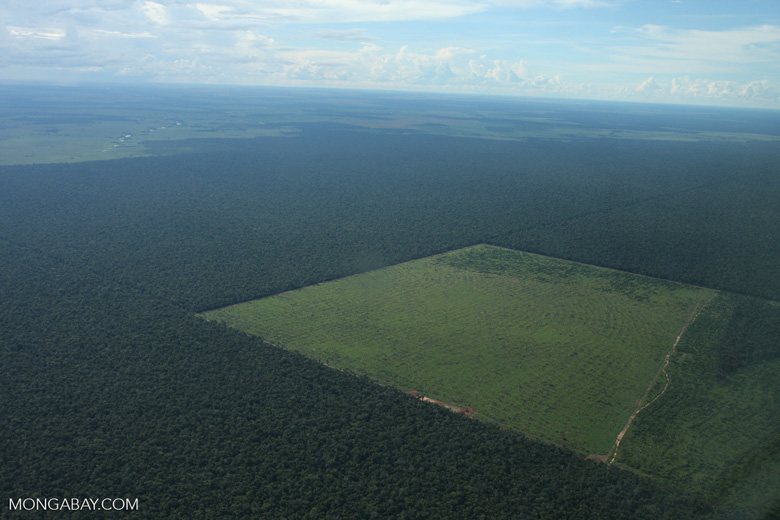- Between 1976 and 2010, roughly 15 percent of the Brazilian Amazon was destroyed, with fire being the most common method for clearing the forest.
- Particulate matter pollution from deforestation fires is linked to thousands of deaths per year.
- Connection between public health and deforestation still largely ignored by Brazilian government.
Brazil’s rate of deforestation has declined dramatically over the past decade, an undeniable boon for wildlife, forest-dependent communities and the global climate.
Now researchers at the University of Leeds have concluded that Brazil’s efforts to reduce deforestation have also saved lives — as many as 1,700 every year, attributable to improved air quality.
Between 1976 and 2010, roughly 15 percent of the Brazilian Amazon was destroyed, the researchers note in their report published by Nature Geoscience. Fire is the most widely used method for clearing the rainforest, usually for agricultural purposes. These forest fires emit large amounts of particulate matter, which severely degrades air quality and can have grave impacts on human health.
“We used satellite observations of the amount of smoke in the atmosphere to study whether there was a link between deforestation rate and air quality,” lead author Dr. Carly Reddington said in a statement. “We were able to demonstrate that when there is less deforestation in Brazil, there are fewer fires and less smoke in the atmosphere — it is amazing that you can see this effect from space.”

Dr. Reddington and team examined satellite data and determined that as deforestation in Brazil declined over the past 10 years, the amount of smoke haze hanging over the southern part of the country has also declined. In fact, in years when Brazil had high deforestation rates, the atmosphere was twice as polluted as it is during years with less deforestation.
The researchers then combined that satellite data with a global computer model to show that particulate matter concentrations declined by roughly 30 percent during the dry season as a result of the reduction in fires associated with deforestation, which led them to conclude that the cleaner air resulted in 400 and 1,700 prevented deaths every year across South America.
One of Reddington’s co-authors, Dominick Spracklen, told mongabay that most of the deforestation fires occur in the so-called “arc-of-deforestation” across the southern border of the Amazon, and that the local population in this region is therefore at the greatest risk. “In this region we estimated more than one premature mortality each year per 10,000 population,” Spracklen said.
But southern Brazil experienced the most deaths due to smoke from deforestation fires, the report says — and therefore stands to gain the most in terms of health benefits from reducing deforestation.
Smoke from deforestation fires is blown south by prevailing winds to more densely populated regions in southern Brazil. It has dispersed to a greater extent by the time it reaches population centers in the south, leading to a lower mortality rate, but the larger population sizes mean that the total number of deaths is still higher.

To maximize the health benefits of reducing deforestation in Brazil, the authors write, “policies aimed at reducing deforestation must also minimize fire across moist tropical forests.”
Instead of working towards such policies, however, the Brazilian government has adopted controversial changes to its forest policies that the authors, citing previous research, say could threaten the progress made so far in reducing deforestation and even reverse improvements in regional air quality.
Satellite data released earlier this year suggest Brazilian Amazon deforestation may have reached a 7-year high.
Besides pressure from the agribusiness industry, a big reason for the recent policy changes, Spracken told mongabay, is that the connections between human health and deforestation are largely ignored in Brazil. “The negative impacts of deforestation on air quality and public health are not well recognized by policy makers or the general public,” Spracken said.
“Equally, the positive impact of reduced deforestation causing improved air quality and better public health has also not been recognized. Reduced deforestation in Brazil has been an amazing environmental success story of the past decade — improved air quality and improved public health is an important co-benefit that should be recognized (and celebrated).”
CITATIONS
- Reddington, C.L., Butt, E.W., Ridely, D.A., Artaxo, P., Morgan, W.T., Coe, H., & Spracklen, D.V. (2015). Air quality and human health improvements from
reductions in deforestation-related fire in Brazil. Nature Geoscience, doi:10.1038/ngeo2535. - Soares-Filho, B., Rajão, R., Macedo, M., Carneiro, A., Costa, W., Coe, M., … & Alencar, A. (2014). Cracking Brazil’s forest code. Science, 344(6182), 363-364.














